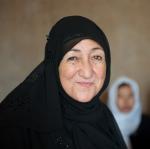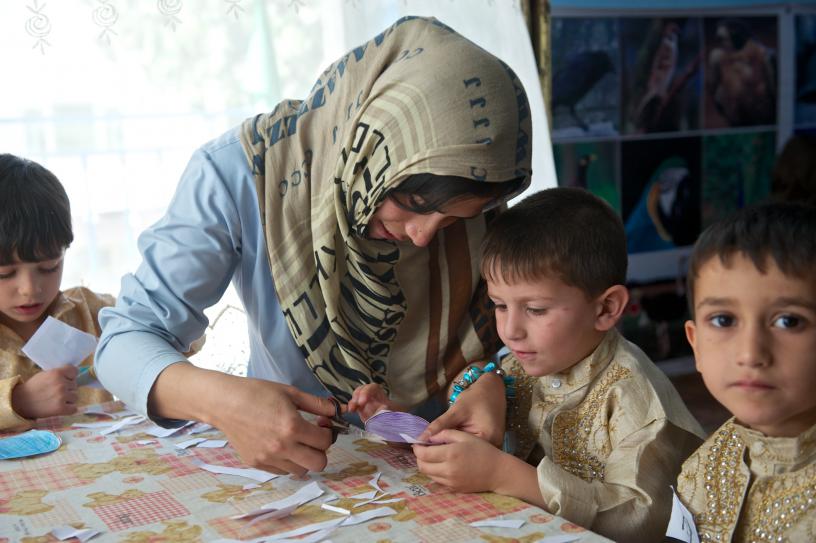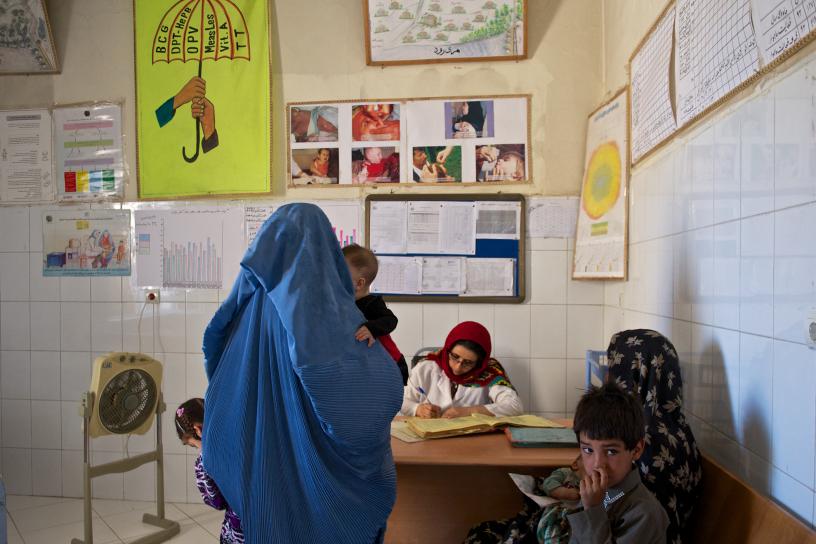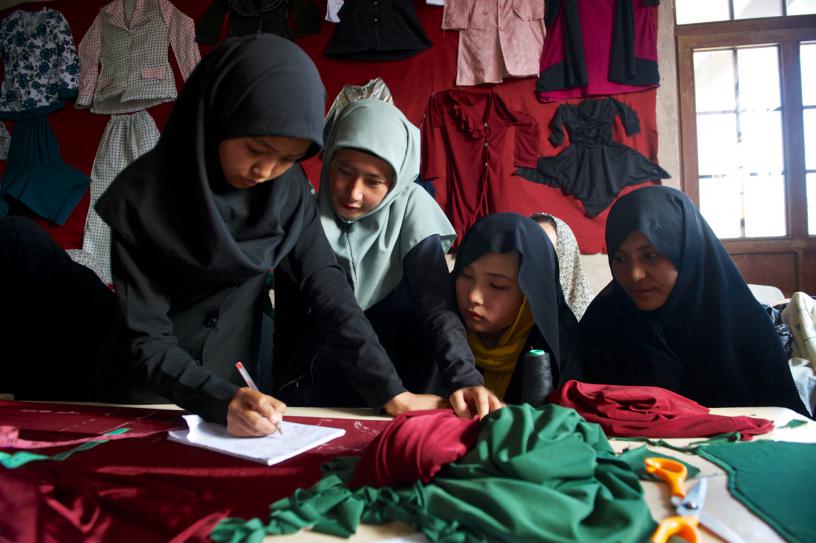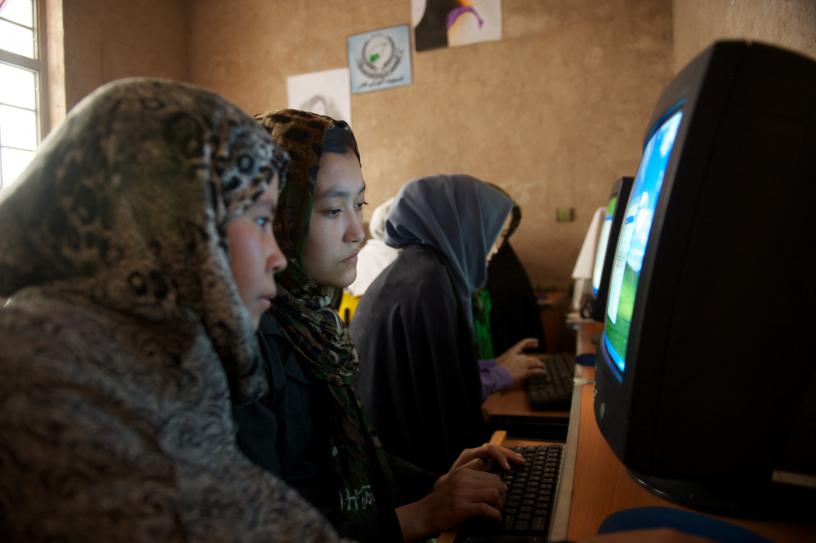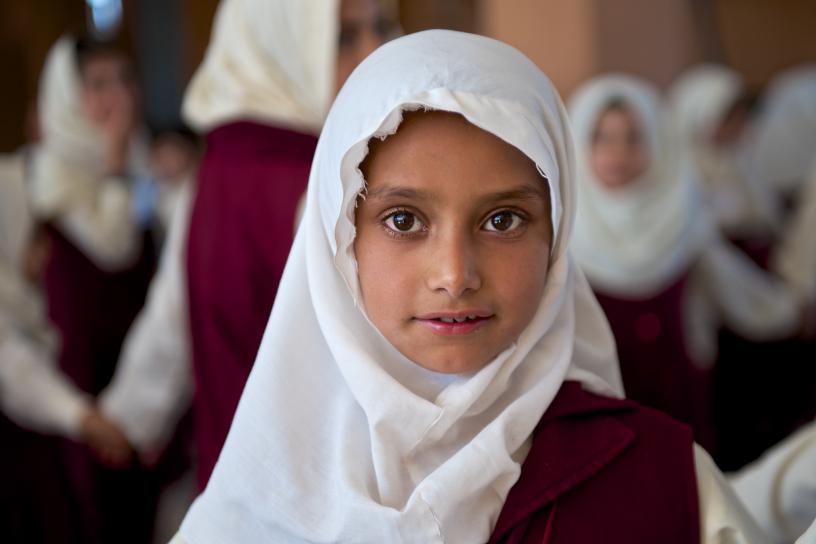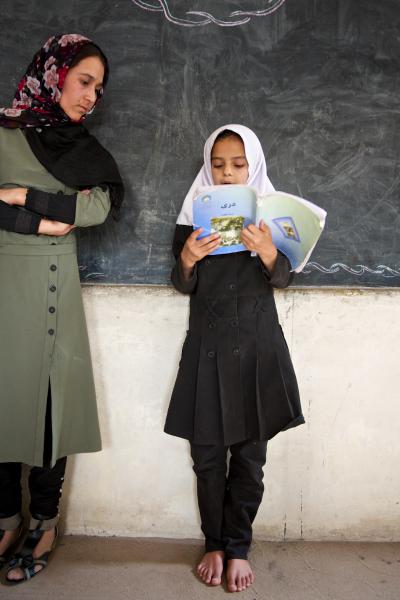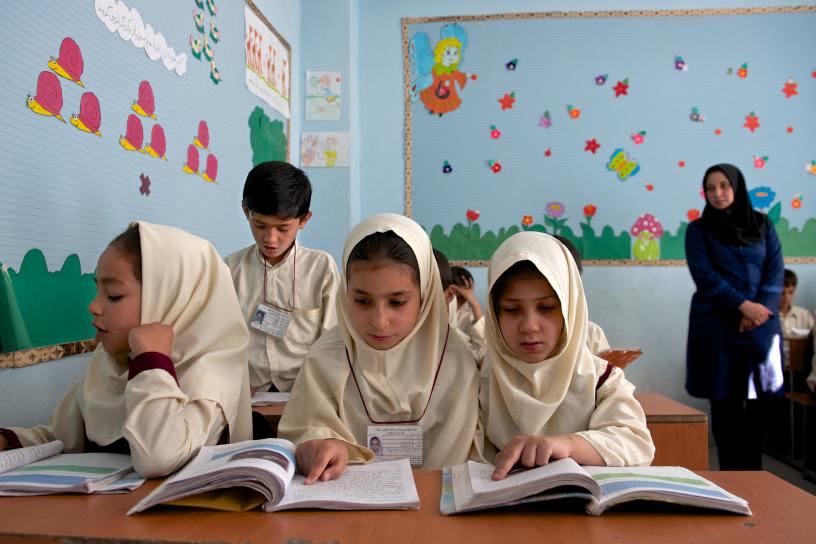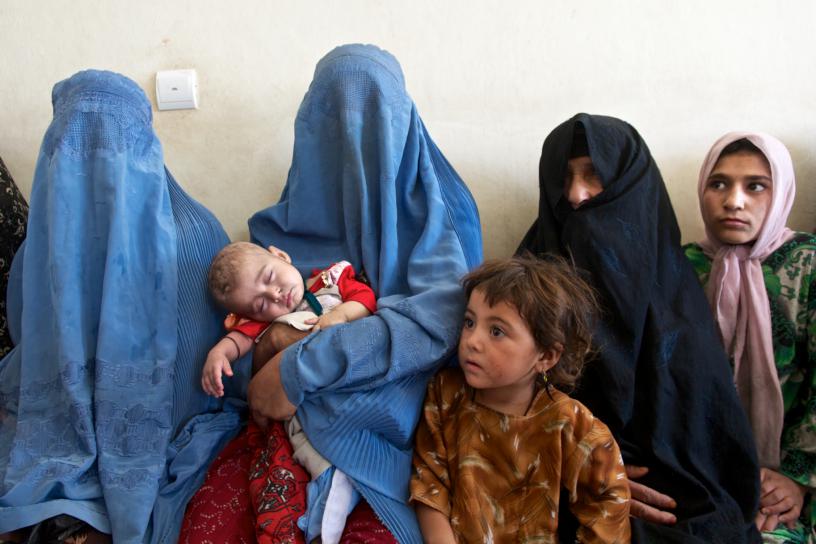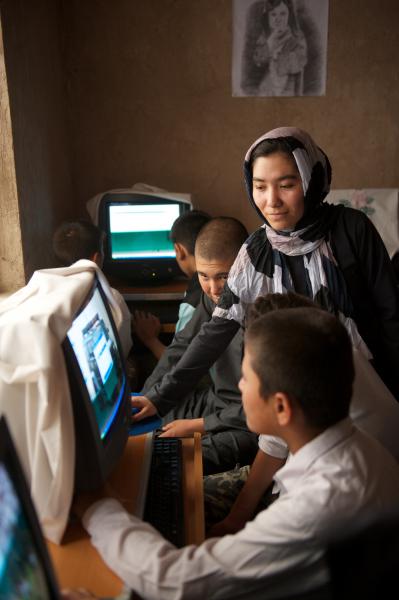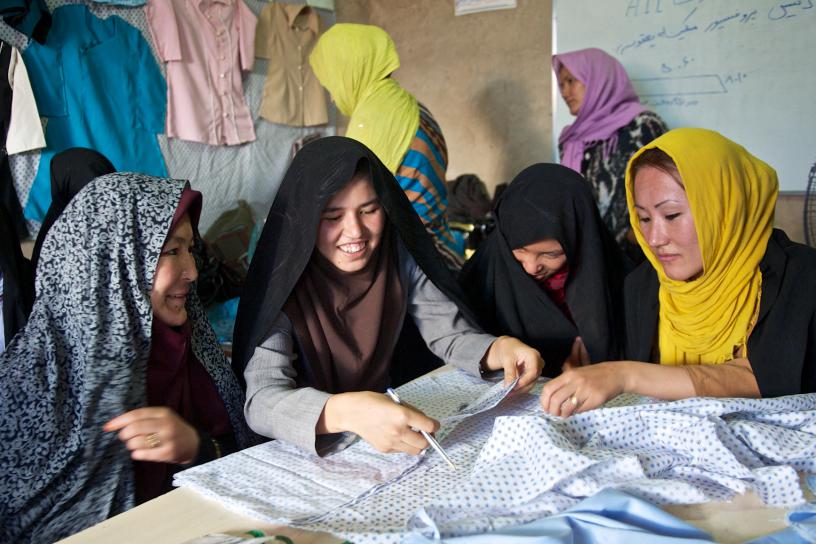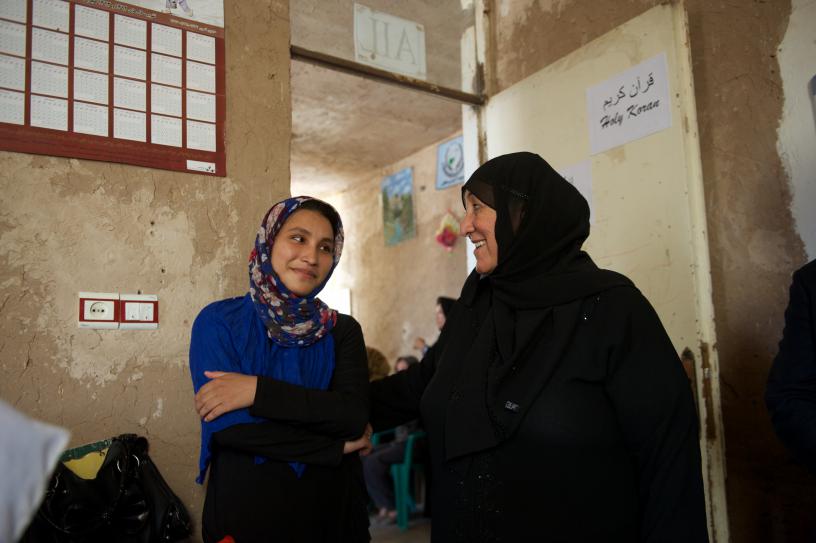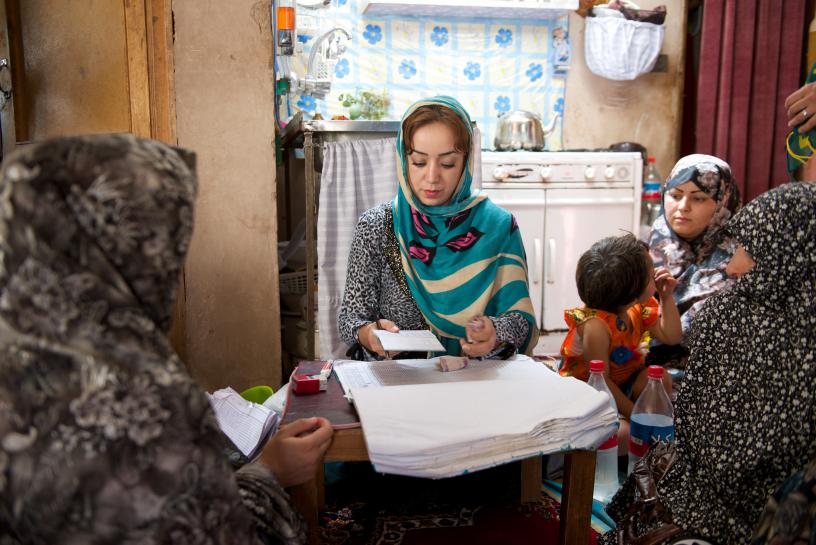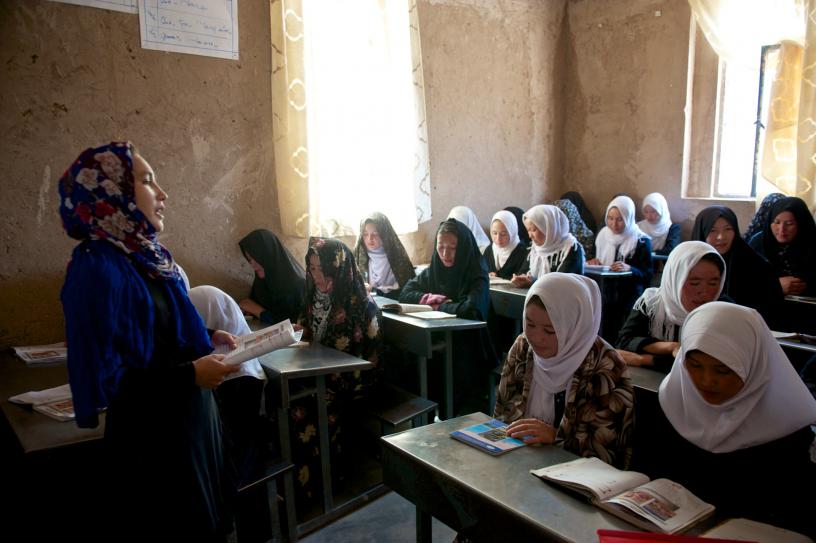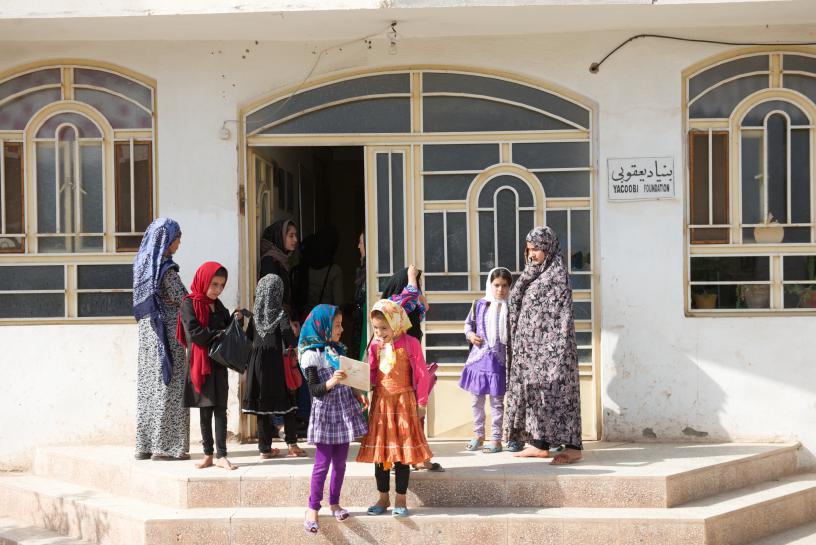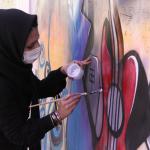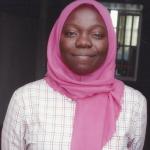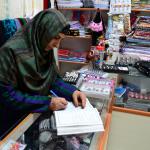Sakena Yacoobi founded the Afghan Learning Instititute (AIL) because she saw firsthand that there was a deep need for education in her home country. AIL now runs 40 learning centers, where women and girls are building skills that will help transform the country from the inside out.
I was born in Herat, Afghanistan and knew from my earliest years that I wanted to help the women of Afghanistan. As a child, I saw neighbors carrying a woman or child to the graveyard. I saw widows forced to beg or work for just a little food. I saw women and children who could not read. I saw the impact that poverty was having on my country; there were no clinics, no schools, no way for people to learn skills that would better their lives. I wanted to change that.
After coming to the US and receiving my Master’s in Public Health, I went to work in the Afghan refugee camps in Pakistan. My vision was to see the Afghan people transformed through education, so that they could ask questions, think for themselves and find ways to solve their own problems by working with other. My vision has not changed. I think that, with education, the Afghan people will find their own way to peace and prosperity.
I founded the Afghan Institute of Learning (AIL) to bring education, health and training to women and children by working at the grassroots, involving the community members, and supporting what they want to do for themselves. We began in the refugee camps, supporting schools and clinics, then moved to supporting secret homeschools inside Afghanistan. After the fall of the Taliban, we established learning centers where people cam come to get an education and the skills they need to have a better life.
AIL now supports 40 learning centers and schools in Afghanistan and Pakistan. We also support 4 clinics, an orphanage, a program for street children, offer workshops to civil society and are helping to reestablish Afghanistan’s rich cultural heritage. Since our founding, AIL has impacted the lives of over 11 million Afghans.
Women and children are going to school and attending classes in learning centers, learning skills such as tailoring so that they can support their families. They are learning to use computers so that they can get good jobs and also can communicate with the world. They are getting the health services they need and, most importantly, through health education, they are learning how to keep themselves and their families healthy. In our schools, centers and health clinics, Afghans are learning about human rights and how they can be leaders in their families, communities and country.
I am optimistic about the future. With education, people are learning they can do anything. Now they have had a taste of democracy. There will probably be setbacks and many will suffer, but Afghans are changing and are transforming their lives through education and learning what they can do for themselves. This will not stop. The seeds have been planted and they will grow. Most importantly, I see a future in Afghanistan where women and men work together as equals, where no one’s human rights are abused, where there is harmony and justice for all. Already there are communities of men and women where this is happening. I pray, in the future, those will be the only communities in Afghanistan.
- Log in to post comments
